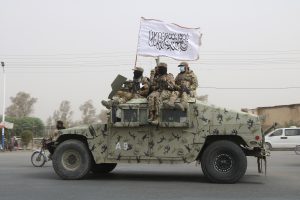A new report by the United Nations Assistance Mission in Afghanistan (UNAMA) released on August 22 details the systemic human rights abuses carried out by the Taliban against former government officials and former members of the Afghan armed forces. It underlines the sense of insecurity as well as impunity among the Taliban. It also points to the fact that modalities of engagement with the Taliban by any country need to factor in the Taliban’s proclivity to engage in revengeful politics and their tendency to renege on promises made.
Violations detailed by UNAMA pertain to extrajudicial killings, arbitrary arrests and detentions, and torture and ill-treatment. Cases were recorded across all 34 of the country’s provinces, with the greatest number in Kabul, Kandahar, and Balkh provinces. As many as 218 extrajudicial killings of former government officials and Afghan National Defense and Security Forces (ANDSF) personnel at the hands of the Taliban were reported during the period between August 15, 2021, and June 30, 2023. In addition, there were 14 enforced disappearances, over 144 instances of torture and ill-treatment, and 424 arbitrary arrests and detentions. If similar violations against civilians alleged to be sympathizers of the dislodged civilian government were to be included, the scale is bound to increase.
Some of the targets of the Taliban’s persecution have included proponents of educational rights for girls. In February 2023, Professor Ismail Mashal, an outspoken critic of the Taliban government’s ban on education for women, was arrested in Kabul while distributing free books. Mashal was released on March 5, but no longer speaks on the subject. In March, Matiullah Wesa, a prominent Afghan campaigner for female education, was arrested by the Taliban. Wesa was accused of being a spy and working against the country’s interests; the United Nations and various diplomats called for his release. Others detained include university professor Rasul Abdi Parsi and Mortaza Behboudi, a French-Afghan dual national journalist.
While the denial of education and employment rights to women have widely been reported in global media, the systemic persecution and purging of the country of the “conspirators” have received less coverage. Human rights groups and the anti-Taliban resistance groups like the National Resistance Front (NRF) have decried the torture and killing of former officials and ANDSF personnel since August 2021. Within days of its capture of power and declaration of general amnesty, the Taliban started executing ANDSF members, including even those who had surrendered. Three instances of such killings were reported on August 30 and 31, 2021 by Amnesty International.
There was possibly a sense of hope among the international community that these were part of an unavoidable and isolated “heat of the moment” fervor, carried out by overzealous ground-level cadres, and would subside once the Taliban central leadership and their area commanders took control of the situation. That false hope, the UNAMA report proves, has been directly contradicted. An overwhelming element of vengeance continues to drive the Taliban’s policies and the regime has no intention of changing its behavior.
Quite visibly, the Taliban have reneged on two promises. First, they failed to provide general amnesty after their seizure of power, in spite of repeated announcements that they would do so. Second, they failed to investigate cases of violations and bringing the guilty to justice.
Taliban spokesperson Suhail Shaheen, while terming the UNAMA report “politically motivated,” didn’t deny the killings, but attributed them to “personal vendetta or other cases of individual crimes.” He insisted that the general amnesty is still in force, without detailing whether there is a systematic plan for implementation of the so-called amnesty program or whether the declaration is only a gentle suggestion for the revenge-seeking Taliban cadres.
In the absence of any internal mechanism for grievance redress, people experiencing or anticipating persecution have little choice other than to seek to leave Afghanistan. 1.6 million Afghans have fled the country since 2021. Those who are already outside the country on temporary visas, such as the thousands of Afghan nationals at medical facilities in India and Afghan students on scholarship, are desperately seeking ways to migrate to other countries. Options are limited.
The fallout of such enormous outward migration has primarily been measured in terms of its impact on neighboring countries. The UNHCR estimates the total number of Afghans in neighboring countries to be 8.2 million. They account for one of the largest protracted refugee situations in the world.
However, it is also crucial to see this as a recurrent brain drain phenomenon, a forced exodus of educated, trained, and experienced professionals out of Afghanistan, whose services could have been used by the Islamic Emirate in its governance endeavors. The Islamic Emirate has suffered from a lack of professional staff to run its government machinery, which is one of the main reasons its performance has remained in shambles. And yet, zeal to implement its regressive ideology has taken precedence over administrative prudence.
The outcome of this is bound to be disastrous for the country and its citizens. The international community, especially the countries vying to do business as usual with the Taliban, must factor this into their policies. The governance deficit combined with the massive brain drain will only aid extremist groups to have a greater ideological grip on the country, with far-reaching consequences for the region and the world.

































